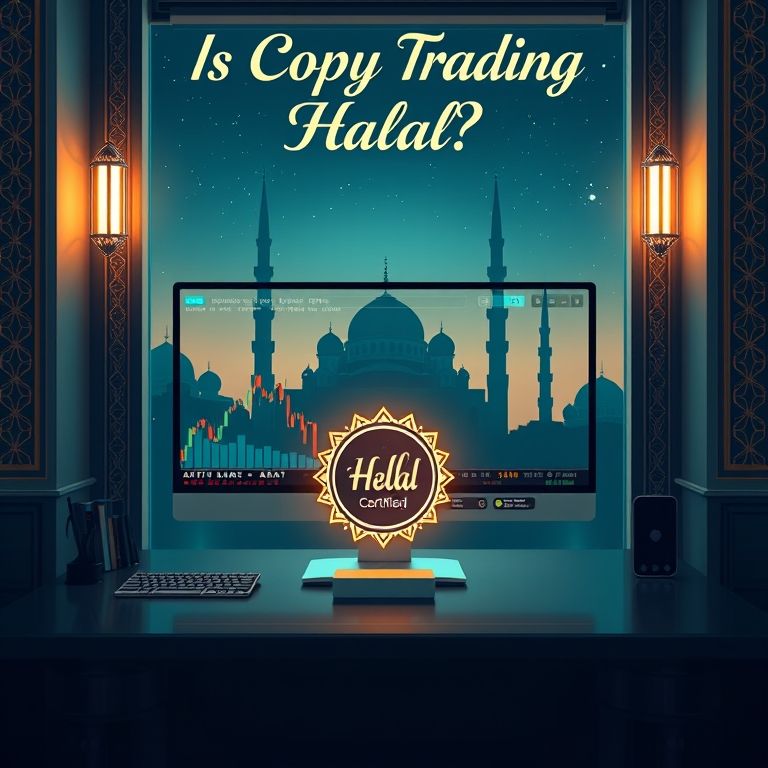is copy trading halal
Is Copy Trading Halal? A Practical Guide for the Web3 Era
Introduction
If you’ve wondered whether copy trading can fit a halal framework, you’re not alone. The growing Web3 landscape blends social signals, automation, and diverse asset classes, which raises practical questions about ethics, risk, and compliance. This guide walks you through what copy trading is, how the halal question plays out across different markets, and real-world tips to trade with clarity and confidence.

What copy trading is
Copy trading lets a trader mirror the moves of proven experts. You select one or several signal providers, then your account automatically imitates their entries, exits, and risk controls. Think of it as a streamlined way to access experience without manually trading every tick. For many users, it’s a bridge between personal time constraints and the desire to participate in forex, stocks, crypto, indices, options, and commodities.
Halal considerations: what to check
- Riba and gharar: halal-friendly trading avoids interest-based payoffs and excessive uncertainty. If a platform relies on swap charges or interest-like costs, look for swap-free (Islamic) options and transparent fee structures.
- Haram activities: ensure the underlying assets and strategies don’t center on forbidden activities. Diversification across halal assets can help, but screening signal providers for ethical trades matters.
- Transparency and accountability: copy traders should publish clear performance metrics, risk controls, and drawdown limits. You want visibility into how profits are generated, not just promises.
- Genuine risk sharing: the best halal-aligned setups emphasize risk management and fair profit-sharing, rather than high-frequency speculation aimed at leverage-driven gains.
Asset classes and halal fit
- Forex: common in copy trading, but beware high leverage and overnight costs. Seek platforms offering Islamic accounts and modest leverage.
- Stocks and indices: typically easier to align with halal principles if the companies are ethically screened and the instruments are not linked to forbidden activities.
- Crypto: scholars differ on rulings; many accept regulated, asset-backed or well-audited tokens with compliant custody. Look for platforms with clear due diligence on tokenomics, audits, and custody.
- Options and commodities: offer hedging tools and real goods exposure, yet carry higher risk. Use prudently and align with risk tolerance and halal criteria.
- Diversification: a halal-friendly approach spreads risk across assets and avoids concentrated bets on one volatile instrument.
Reliability, leverage, and risk management
- Vet signal providers: review long-term performance, drawdowns, and consistency. Favor those with transparent risk metrics and published trade logs.
- Leverage discipline: keep leverage modest; aggressive leverage can magnify losses and complicate halal-risk assessments. A common rule is to start small, then adjust only after steady, responsible performance.
- Position sizing and stops: fixed or dynamic stops protect capital; diversify across multiple traders to avoid correlated losses.
- Due diligence checklist: asset quality, provider credibility, platform security, and clear fee structures. If any box isn’t checked, proceed cautiously.
Security, DeFi, and the current landscape
- Decentralized finance (DeFi) brings permissionless access and programmable rules via smart contracts, but also challenges: smart contract audits, oracle reliability, and governance risk. Security audits, reputable bridges, and non-custodial strategies reduce exposure.
- On-chain data and chart tools: advanced charting, on-chain analytics, and cross-asset dashboards help you verify signals and assess risk in real time.
- Challenges ahead: regulatory clarity, KYC/AML expectations, and guardrails against rug pulls or misrepresentation. A halal-aligned trader errs on the side of transparency and sound risk controls.
Future trends: smart contracts, AI, and halal-ready growth
- Smart contract trading: automated, permissioned execution with explicit risk controls; potential for transparent, auditable halal-friendly strategies.
- AI-driven trading: pattern recognition and risk scoring can augment human judgment, provided the models are explainable and auditable.
- Governance and insurance: decentralized pools with balanced risk-sharing, plus insurance layers for extreme drawdowns, can boost confidence among practitioners who seek halal integrity.
Slogans and takeaways
- Copy smart, trade clean—halal by design.
- Your halal edge in a tolerant, transparent Web3 world.
- Trade with intent, verify the source, and grow responsibly.
If you’re exploring copy trading through a halal lens, start with clear asset selection, conservative leverage, and robust risk controls. Combine reliable signal providers with strong chart analysis and secure platforms, and you’ll find a sustainable path forward in the evolving Web3 financial ecosystem.